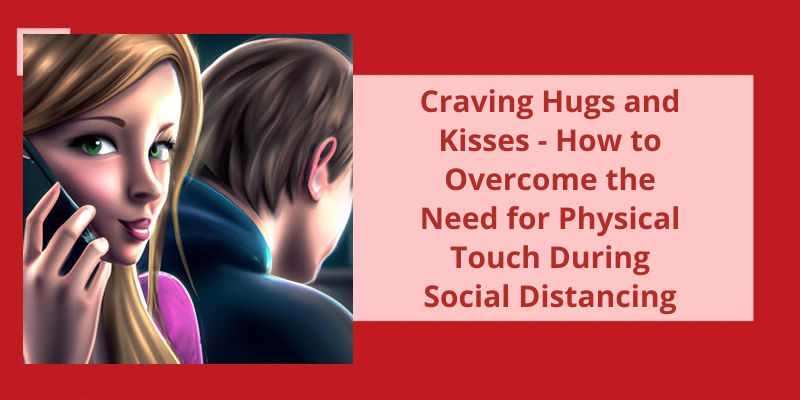We live in a fast-paced world where stress, anxiety, and depression have become all too common, leading many of us to wonder how to stop our bodies from shutting down. We yearn for a way to break free from the overwhelming weight that seems to engulf us, to find a sense of balance and inner peace amidst the chaos. The answer may lie in the transformative power of regular physical activity. Engaging in exercise not only benefits our physical health but also holds the key to unlocking emotional well-being. By releasing endorphins, our brain's natural mood enhancers, exercise has the remarkable ability to ease depression and anxiety. As we focus on the physical activity, our minds shift away from our worries, allowing us to experience a renewed sense of clarity and rejuvenation. What's even more astounding is that even small amounts of daily activity, as little as 10 to 15 minutes at a time, can make a tremendous difference in our emotional well-being. So if you're seeking a way to prevent your body from shutting down, consider embracing the power of movement and witness the transformative effects it can have on both your body and mind.
What Does It Mean for Someone to Shut Down?
When someone shuts down, it can manifest in various ways. They may withdraw and become emotionally distant, avoiding social interactions and isolating themselves from others. This can be accompanied by a lack of responsiveness, as they seem detached and uninterested in their surroundings. Their communication may become limited, as they struggle to find the words to express their feelings or thoughts. They may also exhibit physical signs of shutting down, such as decreased energy levels, changes in appetite, or difficulty sleeping.
The reasons for this shutdown can be multifaceted. It could be triggered by a traumatic event, a highly stressful situation, or ongoing mental health issues. Whatever the cause, shutting down is the persons way of coping with an overwhelming emotional load. By shutting down, they create a temporary emotional barrier to protect themselves from being further consumed by their emotions. It’s important to remember that this isn’t a conscious decision; it’s an instinctive response to self-preservation.
However, while shutting down may provide temporary relief, it isn’t a healthy long-term solution. It’s crucial for individuals facing this issue to seek support and find healthy coping mechanisms. Therapy, counseling, or support groups can offer a safe environment to explore and process emotions. Self-care practices, such as relaxation techniques, regular exercise, and engaging in hobbies, can help alleviate stress. It may also be beneficial to reach out to loved ones and communicate openly about what you’re going through, as social support is essential during difficult times.
Ultimately, breaking the cycle of shutting down requires self-awareness and a willingness to seek help. Understanding the underlying causes and triggers can be a crucial step towards recovery. With compassion, patience, and professional guidance, it’s possible to overcome the emotional shutdown and develop healthier strategies for coping with distress. Remember, you aren’t alone in this journey, and there are resources available to help you on your path to healing.
When faced with someone you care about shutting down, it’s important to approach the situation with patience and understanding. Instead of pushing the conversation further, it might be beneficial to take a break or “table” the discussion for a later time. To clear your mind and gain clarity, it can be helpful to write down your thoughts and feelings, ready to revisit them when emotions have settled. It’s crucial to remain calm and avoid retaliating or having a temper tantrum yourself, as this may only escalate the situation. Engaging in self-soothing activities can aid in maintaining your own emotional well-being during this time. If the shutdowns persist or become distressing, considering professional intervention may provide further support and guidance.
What to Do When a Person Shuts Down?
When someone you love shuts down, it can be incredibly challenging and distressing. It’s important to approach the situation with care and understanding. One crucial step is to take a break from the conversation. By temporarily stepping away, you allow both yourself and the person who shut down to gather their thoughts and emotions. Taking a breather can help prevent further escalation and provide an opportunity for reflection.
During this break, it can be helpful to write down your own thoughts and feelings about the situation. Journaling can serve as a method to process your own emotions and gain clarity. Later on, you can revisit these writings and use them as a basis for open and honest communication when the time is right.
Staying calm is crucial when someone you love shuts down. It’s natural to feel frustrated or hurt, but retaliating or becoming defensive will only exacerbate the situation. Instead, try to remain composed, understanding, and empathetic. Be patient and give the person space to open up when they’re ready.
Engaging in self-soothing activities can be beneficial for both you and the person who shut down. Find ways to relax and find inner peace, such as practicing deep breathing exercises, going for a walk in nature, or listening to calming music. By taking care of your own well-being, you’ll be better equipped to provide support when the time comes.
If the shutdowns happen consistently and significantly impact your relationship, it may be necessary to consider professional intervention. Therapy or counseling can provide a safe and neutral space for both parties to express themselves and work through any underlying issues. A therapist can offer guidance, help each individual develop healthy coping strategies, and assist in rebuilding trust and communication within the relationship.
Remember, resolving this issue will require patience, understanding, and open-hearted communication. By approaching the situation with sensitivity and seeking professional help if needed, you can take steps to help prevent future shutdowns and promote a healthier and more resilient relationship.
Understanding the Root Causes of Shutting Down: This Topic Could Explore Various Reasons Why a Person May Shut Down, Such as Past Trauma, Fear of Conflict, or Difficulty Expressing Emotions. It Can Provide Insight Into the Underlying Issues That Contribute to This Behavior and Offer Strategies for Addressing Them.
- Past trauma
- Fear of conflict
- Difficulty expressing emotions
Conclusion
Consequently, these brief periods of respite can make a substantial and positive difference in our overall emotional health. Embracing the power of physical activity as a means to prevent our bodies from shutting down not only offers tangible benefits but also serves as a reminder that taking care of ourselves holistically is crucial for leading a fulfilled and balanced life.






